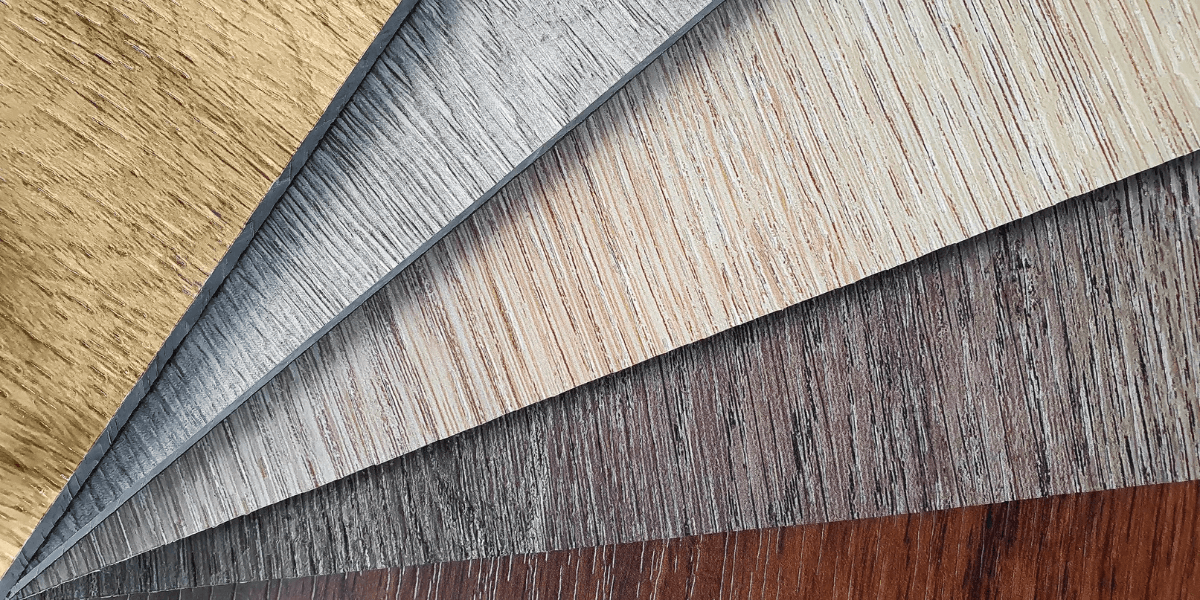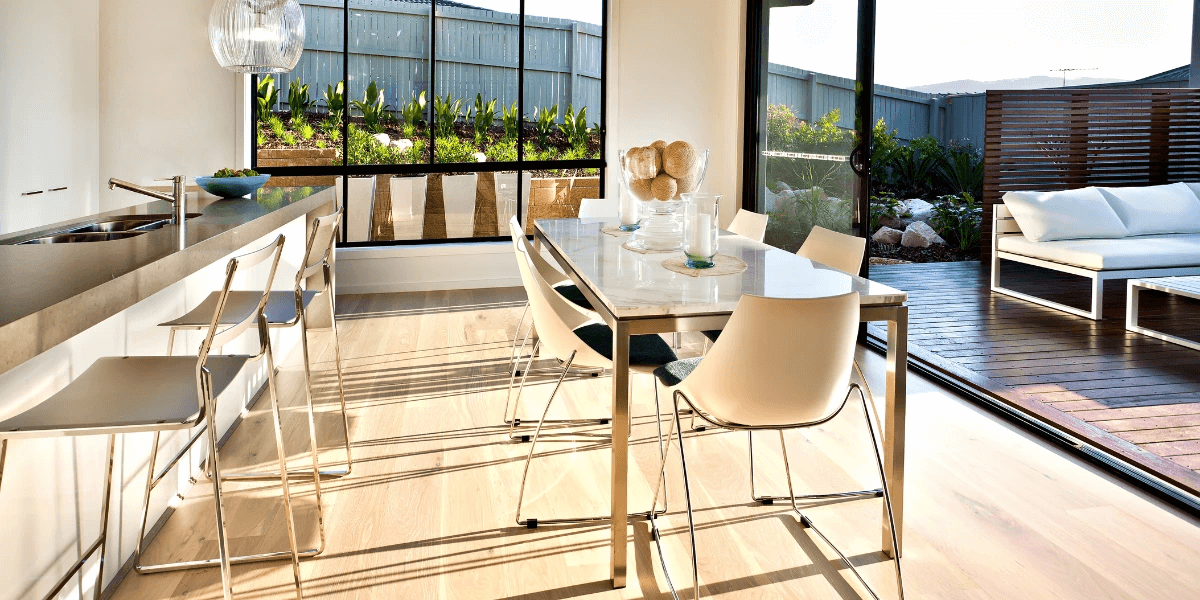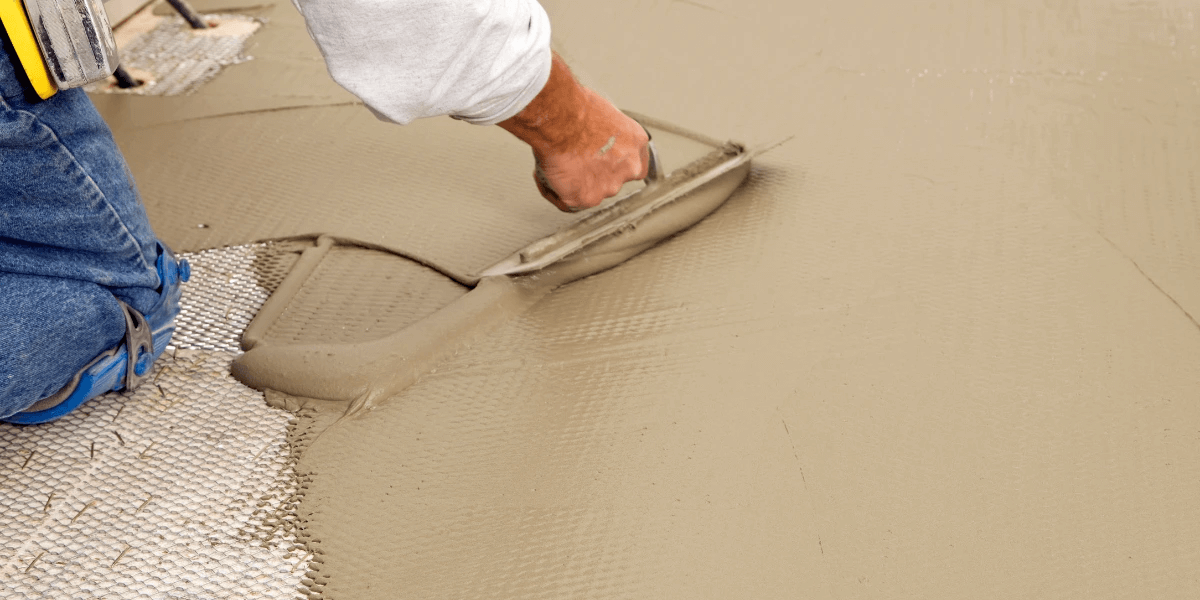Considering luxury vinyl plank flooring? You're onto something great! This flooring option is popular among homeowners for good reasons. It's waterproof, making it a go-to for kitchens and bathrooms where spills and moisture are part of the daily script. Plus, it's scratch-resistant—ideal for busy households and high-traffic areas.
But here's the kicker: LVP flooring comes with a wear layer, a protective cover that keeps each plank looking its best over time. Whether you're aiming for a wood or stone look, this flooring option offers durability without compromising on style. So, if you're looking for a floor that's as practical as it is good-looking, LVP is worth a serious look.
Key Takeaways
Explore the key features and advantages of modern LVP flooring for your home.
Create a contemporary look with wide plank LVP or customize your decor with multi-tone options & embossed textures.
Visit America’s Carpet Outlet to find the perfect option—durable, waterproof and low maintenance!
Exploring Modern LVP Flooring

Choosing the right flooring is a big decision, and luxury vinyl plank flooring is making that choice easier for a lot of folks. It's feature-rich, offering waterproof and scratch-resistant qualities that make it ideal for various spaces in your home, from the kitchen to the living room.
Before you dive into your next home improvement project, take a moment to explore all the fabulous features and styles that LVP has to offer. Trust us, your home will thank you!
Key features of modern LVP flooring
Luxury vinyl plank flooring is gaining attention for good reasons. For starters, it's waterproof—ideal for kitchens and bathrooms where spills are a common occurrence.
And that's not all. The flooring is also designed to resist scratches. This makes it a reliable choice for homes bustling with children or pets. What's more, each plank comes equipped with a wear layer, serving as a protective barrier against everyday wear and tear. Whether your LVP mimics the look of wood or stone, this layer ensures your flooring remains in pristine condition.
In summary, if you're in the market for flooring that combines aesthetic appeal with durability, luxury vinyl plank flooring should be on your radar. It offers the advantages you'd want without the complications often associated with traditional flooring.
Advantages of choosing LVP flooring
Luxury vinyl plank flooring is a practical choice for both homes and commercial spaces. Compared to hardwood and tile, LVP offers a budget-friendly way to refresh your floors. Maintenance is a breeze—just a quick sweep or vacuum, followed by a damp mop with a mild cleanser, will keep your floors looking top-notch.
LVP also brings durability to the table, making it deal for high-traffic areas. Resistant to scratches, scuffs, and stains, LVP is a go-to for busy households globally. It has the added benefit of water resistance that makes it a practical alternative to real wood. Plus, you'll save on both cost and installation effort.
Forget the complexities of prepping subfloors and selecting underlayment—most of the techniques are similar to what you'd do for regular vinyl plank flooring. So, you get the style you want without compromising on protective features or installation services.
With modern models offering a range of authentic looks, shades, and samples to choose from, it's no surprise that more and more people are opting for LVP flooring for their properties.
Popular Styles in Modern LVP Flooring

Choosing the right LVP flooring for your home is like picking the perfect accessory—it should complement your style while offering practical benefits. The market is flooded with options, from classic wide-plank designs to multi-tone patterns and even textured surfaces that add a unique flair to your space.
But don't focus on just the looks. Consider the features that matter to you, too. Want a floor that minimizes sound? Check the thickness. Need something that can handle the wear and tear of a busy household? Look for options that offer added protection against marks and scuffs.
By weighing both aesthetic and functional elements, you'll be well on your way to making an informed choice that not only elevates your home's decor but also stands up to daily life.
Wide plank LVP flooring
If you're aiming for a modern, open feel in your home, wide plank vinyl flooring is a game-changer. These expansive planks, measuring at least 7 inches across, give rooms a more spacious appearance compared to traditional hardwood or standard vinyl. And the customization options?
Endless. Choose from a variety of shades, finishes, and styles to make it uniquely yours.
Multi-tone LVP flooring
If you're after a floor that's as dynamic as your lifestyle, multi-tone LVP flooring is worth a look. Each plank showcases a blend of colors and textures, adding a layer of visual intrigue and depth to your space. And let's not forget the practical perks—this style is a pro at hiding scuffs and dirt, making it a go-to for high-traffic areas and busy households.
Whether you're drawn to subtle grain variations or bold color combinations, the multi-tone range has something to suit every design palate. With a wide array of options at your fingertips, finding the perfect multi-tone LVP floor to elevate your home is more achievable than ever.
Embossed textures
If you're aiming for a floor that's not just visually appealing but also tactile, embossed textures in LVP flooring are worth a look. These textures offer a 3D-like detail and authentic look, mimicking the feel of natural wood or stone, and elevating the authenticity of your floors.
Whether you're a fan of traditional hand-scraped woods or lean more towards chic and sophisticated stones, the variety of patterns available ensures you can achieve your design goals without skimping on quality.
Beyond aesthetics, embossed textures add a layer of depth to your floors, making them not just a treat for the eyes but also for the touch—all while enjoying the ease of luxury vinyl plank installation in your home!
Comparing LVP Flooring with Other Flooring Options

When it comes to choosing the right flooring for your home, it's crucial to weigh all your options. Let's break it down and see how LVP stacks up against some of the other popular choices like laminate, tile, and hardwood.
Starting with laminate flooring—it's a budget-friendly option that offers durability and a variety of styles. However, it's worth noting that the market is flooded with imitations, so while you save money, you might compromise on authenticity. Unless, of course, you purchase from a trusted source.
Then there's tile flooring. Always a classic, tiles offer both durability and a timeless aesthetic. They're particularly good at resisting stains, making them a practical choice for many homes.
Hardwood flooring, on the other hand, brings a natural elegance that's hard to beat. It's a long-lasting option but tends to be pricier and requires more maintenance compared to synthetic options like LVT (Luxury Vinyl Tiling).
So where does that leave LVP? Well, it's like the best of all worlds. It offers modern styling, durability, and requires minimal upkeep. In a landscape of flooring options, LVP stands out as a versatile and sensible choice that doesn't sacrifice trendiness or quality.
LVP vs. hardwood floors
When comparing LVP flooring to hardwood, the core difference boils down to the materials used. Hardwood is, well, all wood, while LVP is crafted from synthetic materials. This distinction impacts not just the price but also the maintenance and aesthetic appeal of each flooring type.
LVP is generally more budget-friendly, making it a go-to for those mindful of costs. However, it does require more frequent upkeep compared to hardwood, which usually just needs an occasional refinish or reseal. While LVP can convincingly mimic the look of real hardwood, it doesn't quite match its longevity, which could be a downside depending on your priorities.
That said, LVP has its own set of advantages that make it a compelling choice for many homeowners. From its durability to its versatility in design, LVP holds its own when pitted against traditional wooden floors.
LVP vs. laminate floors
When it comes to LVP and laminate flooring, both aim to replicate the look of wood or stone, but they're made from different materials.
LVP is all synthetic, while laminate features a fiberboard core made from wood byproducts. This gives LVP a leg up in moisture resistance, making it a solid choice for areas like kitchens and bathrooms where spills are a common occurrence. Laminate, on the other hand, isn't as forgiving when it comes to water exposure.
Durability is another area where these two differ. LVP generally outlasts laminate, especially in high-traffic areas, thanks to its robust polyvinyl chloride construction. And if you're looking for a wide range of color options, LVP has the upper hand. While laminate tends to focus on traditional wood shades, vinyl offers a broader palette, allowing for more customization to fit your home's aesthetic.
LVP vs. tile

Tile flooring has long been a go-to for its durability and moisture resistance, especially in water-prone areas like bathrooms and kitchens. However, LVP is quickly becoming a popular alternative, and for good reasons.
One of the standout benefits of choosing LVP over tile is the comfort factor. LVP is noticeably warmer and more comfortable underfoot, adding a cozy touch to your living spaces.
Installation is another area where LVP shines. It's quicker and less labor-intensive to install compared to tile, allowing you to enjoy your new floors sooner rather than later. And while tile is often praised for its water resistance, LVP holds its own in this department. It offers impressive durability against potential water damage, making it a practical choice for almost any room in the house.
Installation Tips for Modern LVP Flooring

Ensuring the longevity and peak performance of your LVP flooring starts with proper installation. This article offers valuable tips to guide you through a seamless setup process. From preparing the subfloor to selecting the right underlayment, each step is crucial.
The choice of installation technique also plays a significant role, as it needs to be tailored to your specific space. By paying attention to these essential details, you can be confident that your new floors will not only look fantastic but also stand the test of time.
Preparing the subfloor
Before diving into the installation of your LVP flooring, it's crucial to give your subfloor the attention it deserves. A well-prepared subfloor ensures a smooth and even surface, helping you sidestep future issues like unevenness or poor adhesion.
Begin by removing any existing flooring and thoroughly cleaning the area. Take a close look for any imperfections—be it cracks, holes, or uneven spots—and tackle them head-on before laying down your new material.
Investing time in properly preparing the foundation sets the stage for a successful installation, one that will hold up to the rigors of daily life for years to come.
Underlayment options
Considering underlayment for your LVP floors can be a game-changer, especially when it comes to enhancing comfort and sound insulation. While it's not strictly necessary, this extra layer can make a noticeable difference in areas that see a lot of foot traffic or where noise could be a concern.
You have a variety of material options for underlayment, including foam, rubber, and cork. Take your time to evaluate which one aligns best with your specific needs before making your selection.
It's worth noting that many LVP products come with built-in underlayment, eliminating the need for an additional purchase. Be sure to check the specifications of your chosen flooring before you invest in separate underlayment!
Floating vs. glue-down installation
Choosing between the floating and glue-down methods for installing your LVP flooring is a crucial step that depends on various factors, including how the floor will be used and your long-term plans for the space. The floating method involves laying the planks on the subfloor without using any adhesive or nails, making it easier to remove or update the flooring in the future.
On the other hand, the glue-down method offers more stability, as the planks adhere directly to the subfloor using specialized adhesives. While this approach provides a more secure installation, it can be more challenging to remove the flooring later on.
Both installation methods come with their own set of advantages and drawbacks. Your choice will ultimately depend on your specific needs and preferences, so take the time to weigh all the factors before making your final decision on how to install your LVP floors.
Caring for Your LVP Floors

Maintaining the beauty and durability of your LVP flooring requires a few simple yet effective steps. Regular vacuuming or sweeping is essential to remove dirt and debris, preventing scratches on the surface layer. For a deeper clean, opt for mild detergents when mopping, but steer clear of abrasive cleaners that could damage the protective wear layer.
Promptly wiping up spills is crucial to avoid potential staining. Additionally, placing doormats at entryways can trap dirt particles before they spread to other areas with LVP flooring.
By consistently following these maintenance guidelines, you can ensure that your LVP floors will retain their beauty and functionality for years to come.
Discover Flooring Excellence at America's Carpet Outlet: Your Ultimate Destination for LVP Solutions
America's Carpet Outlet is your go-to source for top-quality LVP flooring. With convenient locations in State College, PA, and Austin, TX, our extensive inventory features a wide array of styles to fit any aesthetic. Whether you're drawn to multi-tone wide planks or prefer the intricate details of embossed textures, we have the ideal LVP flooring to enhance your home.
Our dedicated team is here to assist you every step of the way, from selection to installation. We're committed to helping you find flooring that not only aligns with your design vision but also withstands the rigors of daily life.
Contact us or stop by today to browse our diverse selection of LVP flooring and experience its numerous advantages for yourself!
Summary
To summarize, luxury vinyl plank is a great choice for a modern home that needs reliable and fashionable flooring. This resilient option has the added bonus of being waterproof as well as scratch resistant. Making installation effortless.
If you’re looking for something to suit your style, there are plenty of options in wide planks or multi-tone patterns with realistic textures available at America’s Carpet Outlet. This kind of vinyl offers all these great benefits while still complementing any decor without sacrificing quality or cost efficiency.
Frequently Asked Questions
What is LVP in flooring?
LVP stands for Luxury Vinyl Plank flooring. It is a synthetic flooring material designed to mimic the appearance of natural materials like wood, stone, or tile.
LVP is known for its durability, water resistance, and ease of installation. It consists of multiple layers, including a wear layer that protects against scratches and scuffs, making it a popular choice for both residential and commercial spaces.
Is LVP flooring expensive?
The cost of LVP flooring can vary widely depending on the brand, style, and features. However, it is generally considered to be a cost-effective option when compared to natural materials like hardwood or stone.
Prices can range from as low as $2 per square foot to upwards of $7 per square foot, not including installation costs.
Is LVP better than laminate flooring?
LVP offers several advantages, such as water resistance, durability, and a wide range of design options. It's an excellent choice for areas prone to moisture like bathrooms and kitchens.
While it's difficult to say definitively that LVP is "better" than other types of flooring, it does offer a unique combination of benefits that make it a compelling option for many homeowners.
What color LVP flooring is timeless?
If you're in search of a flooring option that combines timeless elegance with practical benefits, white and grey LVP flooring are popular choices. These two colors offer a classic aesthetic that complements a wide range of home decors.
Is LVP OK for high end homes?
LVP floors are indeed a versatile and high-quality choice for upscale homes. Offering exceptional water resistance, they are ideal for moisture-prone areas such as bathrooms and laundry rooms. The ease of installation and the wide array of colors and designs available make it simple to find the perfect match for your home's decor.
Moreover, the durability of LVP flooring ensures it will stand the test of time with minimal maintenance required. Suitable for a range of spaces including kitchens, dining rooms, and living areas, LVP flooring is an excellent investment for any home.
What are the cons of LVP flooring?
LVP flooring does not match the durability of tile or hardwood, but don't let that put you off. Vinyl flooring offers its own set of advantages. It serves as a cost-effective alternative that still provides a high degree of aesthetic flexibility.
Available in a wide range of colors and styles, LVP allows you to craft a visually appealing space in any room. Additionally, its ease of maintenance makes it a practical choice for busy households.
Overall, LVP flooring strikes a balance between affordability, style, and convenience.
What is LVP flooring?
LVP flooring is a versatile option for both home and business settings. Its synthetic features mimic traditional materials like wood, stone, and tile, offering both aesthetic appeal and functional strength.
One of the key advantages of installing LVP floors is their water-resistant nature, making them suitable for wet areas like bathrooms and kitchens. Cost-efficiency is another strong point; LVP provides long-term value due to its durability, making it a more economical choice compared to regular tiles and stones.
What are the key features of LVP flooring?
LVP flooring stands out for its waterproof and scratch-resistant qualities. These features make installation easy and maintenance minimal. The flooring is also cost-effective, fitting a variety of budgets. Its durable nature makes it an ideal choice for high-traffic households, as it resists damage and requires less upkeep compared to other types of floors.
Investing in LVP flooring is a decision that pays off over time, as you won't find yourself needing to replace it as often as some other market options.
